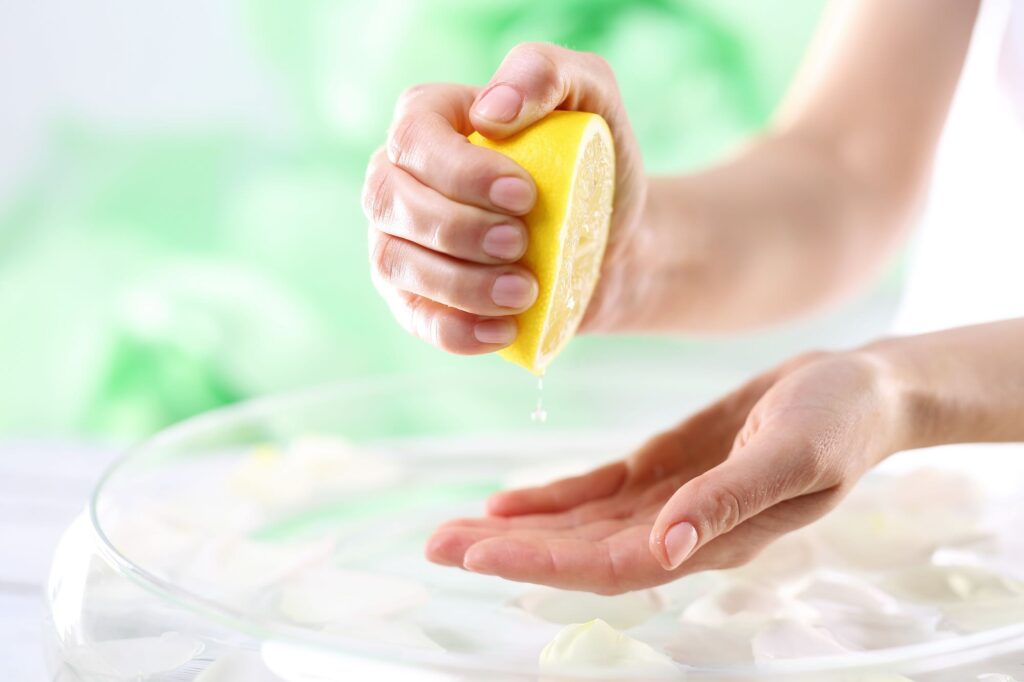Have you ever heard the intriguing claim that “will lemon juice make a pregnancy test positive”? While it may sound fascinating, it’s essential to understand the science behind pregnancy tests and the role of acidity in their results.
Let’s dive into the surprising truth behind this myth and the importance of accurate pregnancy testing.
Key Takeaways
- The myth that lemon juice can alter the results of a pregnancy test is false.
- Pregnancy tests detect hCG in urine or blood to determine if a woman is pregnant, with most at-home tests having an accuracy rate of up to 99%.
- Acidity from lemon juice does not affect the outcome of a pregnancy test and other potential factors should be considered when assessing accuracy.
The Lemon Juice Myth: Fact or Fiction?
According to the lemon juice myth, its acidity supposedly alters pregnancy test results, causing false positives or negatives. However, there is no valid scientific evidence to support this claim, casting doubt on its accuracy. Despite the persistent rumors, the truth is that acidity from lemon juice or any other sources does not impact the outcome of pregnancy tests. The specific chemical reactions involved in detecting the hormone human chorionic gonadotropin (hCG) in a woman’s urine are unaffected by the presence of acidic substances.
Pregnancy testing uses meticulously calibrated test strips designed to detect hCG, a hormone produced during pregnancy. These strips deliver accurate results, unaffected by external factors like the presence of lemon juice or water excess.
How Pregnancy Tests Work: A Brief Overview
Pregnancy tests, whether they are home pregnancy tests or blood tests performed at a doctor’s office, work by detecting the presence of the hormone human chorionic gonadotropin (hCG) in a woman’s urine or blood. hCG is produced by the placenta shortly after a fertilized egg implants in the uterus. The level of hCG in a woman’s body increases rapidly during the first few weeks of pregnancy, making it a reliable indicator of pregnancy.
Curious about pregnancy test accuracy? Most at-home pregnancy tests boast an accuracy rate of up to 99%, producing reliable results. However, keep in mind that factors such as:
- Implantation timing
- Irregular menstrual cycles
- Premature testing
- Excessive liquid intake
- Certain medications
- False positives resulting from chemical pregnancies, ectopic pregnancies, or recent miscarriages
can influence test accuracy.
Types of Pregnancy Tests
There are various types of pregnancy tests available, including urine tests, blood tests, and ultrasounds. Urine home pregnancy tests are highly accurate when taken correctly. These tests function by detecting the hormone human chorionic gonadotropin (hCG) in the urine, which is only secreted by the body if a person is pregnant.
Blood pregnancy tests, on the other hand, require a blood sample taken from a vein, usually in the arm. These tests can measure the precise quantity of hCG hormone in the blood.
Ultrasounds, a type of imaging test that uses sound waves to generate an image of the interior of the body, can also be used to identify a pregnancy and track the progression of the fetus.
Accuracy and Reliability
Pregnancy tests are generally reliable, but their accuracy can be influenced by user error and other factors. For the most accurate results, it’s vital to meticulously follow the test instructions. Blood tests are even more accurate than urine tests, making them the best bet for a conclusive answer.
If you’re unsure about the accuracy of a home pregnancy test, it’s a good idea to wait a few days and take another test. Alternatively, consult your healthcare provider to confirm the result through lab testing. Bear in mind that the accuracy can vary across different pregnancy test brands, so choosing a reputable brand and following the instructions closely will yield the most precise results.
The Role of Acidity in Pregnancy Test Results
Acidity can affect substances and reactions by facilitating the transfer of protons (H+) between chemical species, thus allowing for the formation of new compounds through reaction. No research findings suggest that the acidity of lemon juice or any other acidic substances can change the outcome of a pregnancy test. Hence, it is not advisable to take such chances for pregnant women. The chemical reactions involved in pregnancy tests are not affected by the acidity of lemon juice or any other factors, such as the presence of apple juice in the urine.
Inaccurate pregnancy test results can stem from:
- Incorrect test usage
- Expired tests
- Certain medications
- Urine dilution due to excessive liquid intake
So, while it’s important to consider potential factors that can impact the accuracy of pregnancy tests, acidity from lemon juice or any other substances is not among them.
Debunking the Lemon Juice Myth
The lemon juice myth has been debunked due to the specific calibration of pregnancy test strips and a lack of supportive scientific evidence. Test strips and indicators used in pregnancy tests are specifically designed to deliver accurate results. They are unaffected by external factors, like the presence of lemon juice. The chemical reaction between lemon juice and pregnancy test strips is not impacted by the acidity of lemon juice, as pregnancy tests are specifically designed to detect the presence of the hormone human chorionic gonadotropin (hCG).
The source of the lemon juice myth in pregnancy testing is uncertain and may have arisen as a simple explanation for certain trigger foods during pregnancy. However, the fact remains that there is no scientific proof to back up the assertion that lemon juice or any other acidic substances can affect pregnancy test results.
Factors That Can Cause False Positives and Negatives
Multiple factors can lead to false positives and negatives in pregnancy tests. Expired tests, for example, may not function correctly, leading to inaccurate results. Incorrect usage, such as testing too early before the first day of a missed period, can also result in a false negative result, as it makes it more difficult for the test to detect the hormone hCG. In some cases, a false positive result may occur due to certain factors affecting the test’s accuracy.
Dilution of a woman’s urine by excessive liquid intake, including caffeine, can reduce the concentration of hCG in the urine, making it more difficult for a home pregnancy test to detect the hormone. Certain medications or medical conditions can also impact the accuracy of pregnancy tests, leading to either false-positive or false-negative results.
The Importance of Accurate Pregnancy Testing and Seeking Medical Advice
Accurate pregnancy testing is crucial for proper prenatal care, as it provides reliable information about an individual’s pregnancy status. This information is vital for making informed decisions about healthcare, prenatal care, and family planning. Incorrect test results can result in unnecessary stress, confusion, and potentially damaging decisions.
If you obtain a positive pregnancy test or a negative result and doubt its accuracy, consult a healthcare provider to confirm the positive result through lab testing or seek professional medical advice. By ensuring accurate pregnancy testing and seeking professional medical advice, you can make the best decisions for your health and the well-being of your baby, especially if you test positive.
Summary
In conclusion, the lemon juice myth is debunked due to the specific calibration of pregnancy test strips and the lack of scientific evidence supporting the claim. Acidity does not affect pregnancy test results, and several factors can cause false positives or negatives. Accurate pregnancy testing and seeking medical advice are crucial for proper prenatal care, so it’s essential to consult healthcare professionals for accurate pregnancy evaluation and advice.
Frequently Asked Questions
What else turns a pregnancy test positive?
False-positive pregnancy test results can be caused by incorrect test usage, previous abortions or miscarriages, and certain medications. For accurate results, it is best to seek medical advice after a positive pregnancy test.
What gives false-positive pregnancy test?
False-positive pregnancy tests can occur due to incorrect usage, previous abortions and miscarriages, certain medications, and fertility drugs that contain the HCG hormone. In some cases, a false-positive might happen if you had a pregnancy loss soon after the fertilized egg attached to the uterine lining.
Can lemon juice make a pregnancy test positive?
No, lemon juice cannot make a pregnancy test positive; there is no scientific evidence to support this claim.
When should I consult a healthcare provider after taking a pregnancy test?
If you receive a positive or negative result from a pregnancy test and are unsure of its accuracy, it’s important to consult with a healthcare provider to confirm the result through lab testing or seek medical advice.





